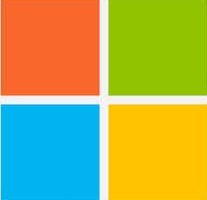There’s a good chance you are still using Windows XP operating system on your personal computer – whether at home or at work. Can you believe the operating system turned 10-years-old last month? It’s pretty amazing that, in this age of rapidly evolving technology solutions, a decade-old system is still plugging along satisfying so many people’s everyday computing needs.
Microsoft offered this graphic that really puts in perspective how much has happened since XP was a young pup:
Source: Windows for Your Business Blog
Microsoft, however, does plan to discontinue support for the aging operating system. After all, XP has already weathered the release of two younger siblings, Windows Vista, then Windows 7, and now Windows 8 is approaching release.
Why does XP have such staying power? Because business users are reluctant to spend the money necessary to upgrade operating systems as frequently as Microsoft releases them.
Vista suffered from bad press, which made adoption even less likely, and Windows 7 required a completely fresh install – not just an upgrade from a computer’s previous operating system.
Not only was that going to be expensive, but there was no guarantee that all the other existing software on a user’s system would continue to work within the Windows 7 environment. Businesses rely on various programs they use every day, so they can’t risk doing without – and upgrading one or many specialty applications can be tremendously expensive.
And that’s why so many businesses are still running Windows XP.
At Invision, we’re aware of the complexities of maintaining and securing an older operating system, as well as the process for upgrading to a new system. Trying to decide what the best bet is for your business? Give us a call when you need help maintaining, planning or upgrading your business system.






